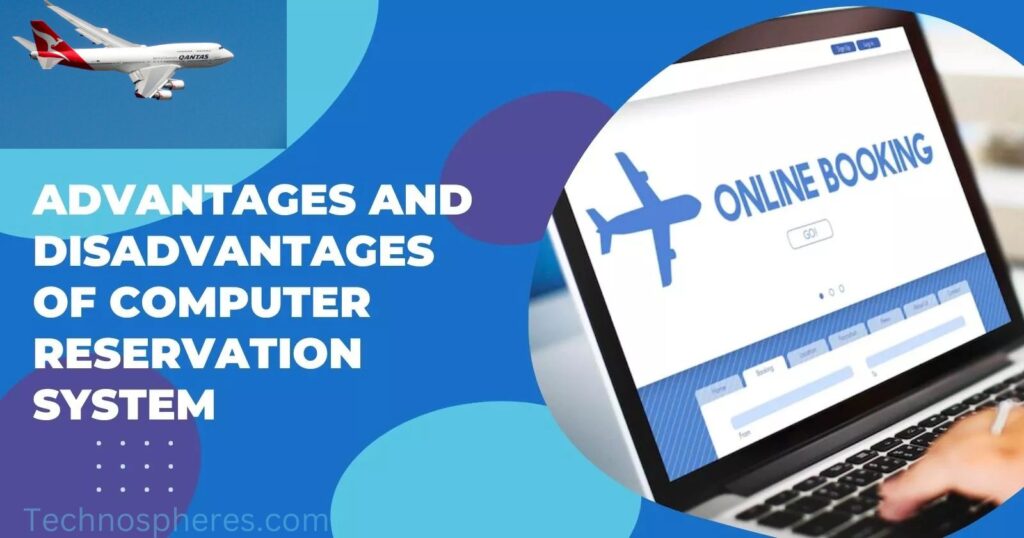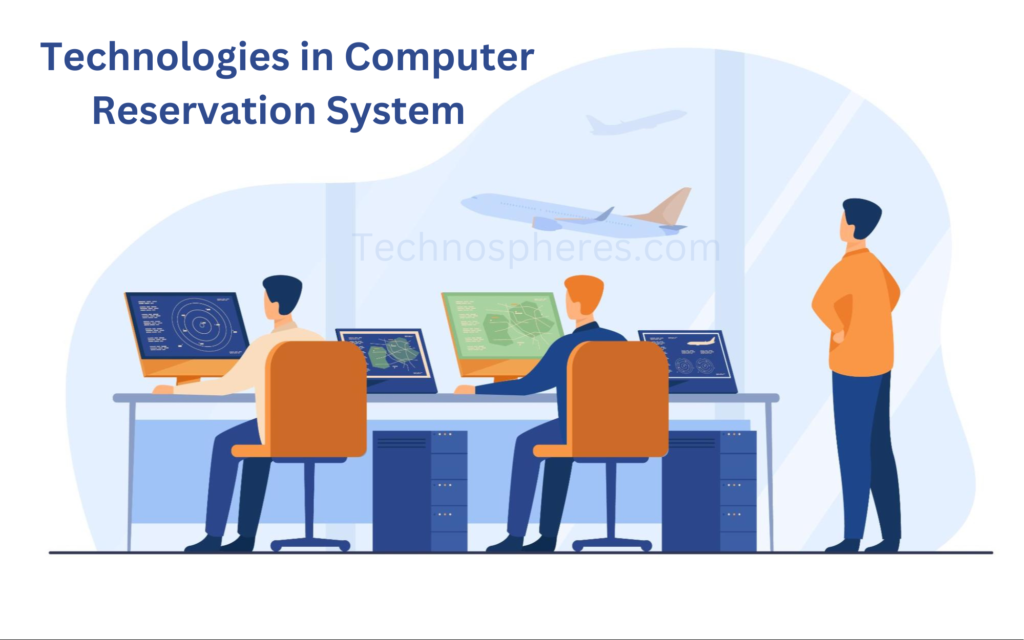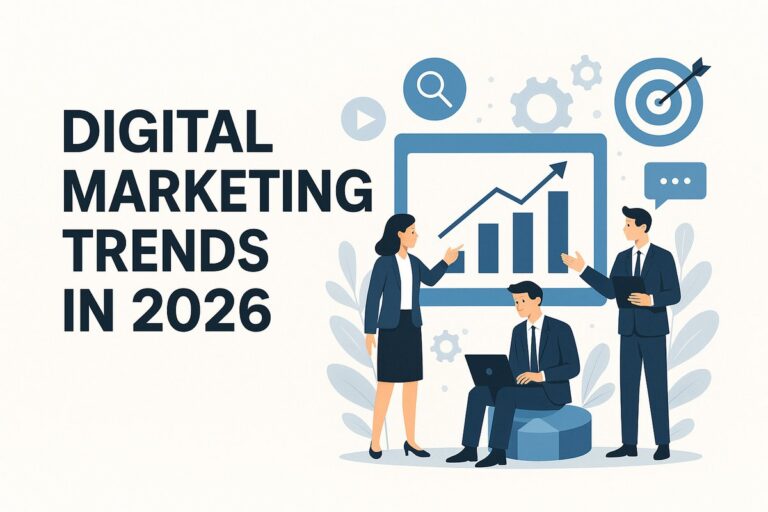
Computer Reservation System News
The Computer Reservation System News is set of information of one automated system for keeping and arranging information on travel plans. Mostly used by hotels, airlines, rental car agencies, and travel agencies to simplify operations and support booking.
With an automatic system, consumers of a Computer Reservation System (CRS) can search, arrange, and manage travel services including flight tickets, hotel accommodations, car rentals, and other travel preparations. It works like a central field center that connects suppliers (hotels, airlines, etc.) with customers and travel agencies, therefore providing live access to availability, pricing, and booking data.
Chief components of Computer Reservation System:
- Flight Booking: Gives live pricing and availability for flights.
- Automatic Fare Calculation: Computes the cost of travel including taxes and discounts.
- Itinerary Management: Stores and retrieves customer travel details.
- Payment Processing: Facilitates secure online transactions.
- Customer Profiles & Loyalty Programs: Manages frequent flyer miles and reward programs.
Significance of Computer Reservation System News
Essential to the travel and hospitality industry is a Computer Reservation System (CRS) that simplifies processes, boosts performance, and elevates consumer experiences. CRS is absolutely critical for this;
Centralized Booking Control
CRS permits instant reservations and booking for flights, accommodations, vehicle rentals, and any other travel service. Customers and travel agencies get access to real time availability and rates, therefore lowering errors and double booking.

Better Customer Experience.
Customer satisfaction is improved by quick confirmations and effortless reservations process. Businesses can deliver custom travel plans according on preferences thanks to personalization tools
Automation and Efficiency
Automating ticketing, invoicing, and customer contact will lower hand son work. Guarantees fast changes on booking cancellations, rescheduling, and amendments.
Costs Saving and Revenue Rising.
Using dynamic pricing systems, assists companies improve their pricing approach. Direct booking choices lessen reliance on outside agents.
Integration with Global Distribution Systems (GDS)
Providing companies access to a wide network of travel suppliers, CRS links to GDS systems such Amadeus, Sabre, and Travelport raises worldwide reach for travel companies, hotels, and airlines.
Data Handling and Analysis
Man data driven judgments taking into account customer preferences, market demand, and booking patterns. Helps companies target the correct audience and enhance marketing techniques.
Improves Working among Partners that Travel Together
Smooth coordination depends on airlines, hotels, and travel agents being able to distribute real time inventory and pricing. Furthermore, it lowers the possibility of overbooking or reservation inconsistencies.
Computer Reservation System (CRS) Technology Development
Hotels, airlines, and travel agencies use computer reservation systems (CRS) in order to reserve and book. Technology in CRS has evolved significantly over the years as an endeavor to enhance performance, connectivity, and interface. Here is a development schedule:
Early Development (1950s-1970s)
Manual Booking Process: Before CRS, reservations were handled manually using paper-based systems. Sabre System (1960s): American Airlines and IBM developed Sabre (Semi-Automated Business Research Environment), the first automated airline reservation system. Expansion to Other Airlines: More airlines adopted similar systems, such as Apollo (United Airlines) and ARS (Airline Reservation System).
Latest Developments in Computer Reservation System
Recent years have seen major changes in computer reservation systems (CRS) as they have incorporated cutting edge technologies to improve user experience and efficiency. Automation, AI generated features, and cloud based technologies are transforming the travel and hotel sector and given new attention in CRS developments.
Modern additions and developments in CRS
State of the art capabilities on current CRS systems streamline reservation procedures and help customer happiness. Among the most important changes are
- Advanced CRS solutions provide real time availability information, therefore lowering overbooking chances and improving operational performance.
- AI driven dynamic pricing systems change prices based on need, competition, and historical information to optimize revenue.
- New CRS systems enable multichannel booking including internet, mobile, and social media, so providing a smooth reservation experience.
- Through integrated CRS and CRM solutions, improved customer data analytics and personalized marketing approaches are now feasible.
- Better encryption, biometric authentication, and adherence with data protection laws guarantee a safe reservation experience.
AI and Automation in CRS
- By changing how reservations are processed and managed, artificial intelligence (AI) and automation have become major forces driving efficiency in CRS.
- By answering questions and helping to book without human interaction, AI driven chatbots instantly help customers.
- Machine learning algorithms study reservation trends to forecast consumer choices and improve product offerings.
- Use of artificial intelligence in Automatic Ticketing and Confirmation: Automated systems can generate tickets, confirmations, and itinerary updates by themselves, thus lessening the human workload.
- AI keeps track of transactions for any telltale signs, therefore reducing fraudulent transactions and improving security.
Cloud based CRS vs. Legacy technologies
Gaining traction with more flexibility, scalability, and cost effectiveness is the transition from old systems to cloud based CRS solutions. Preferred by present travel and hospitality companies, cloud based CRS systems enable companies more agility and better data management.
| Feature | Cloud-Based CRS | Legacy CRS |
| Scalability | Easily scalable based on demand | Limited scalability, requires hardware upgrades |
| Accessibility | Accessible from any device with an internet connection | Requires on-premise access |
| Cost Efficiency | Subscription-based pricing, lower maintenance costs | High upfront costs, ongoing maintenance required |
| Security & Updates | Regular updates and security patches from vendors | Requires manual updates and security patches |
| Integration | Easily integrates with third-party APIs and tools | Limited integration capabilities |
Key Vendors in the CRS Market
The CRS business is of utmost importance to the travel and hospitality industry, enabling airlines, hotels, car rental businesses, and travel agencies to handle reservations and bookings. Global Distribution Systems (GDS) providers and CRS specialty firms are the largest organizations.
Global Distribution Systems (GDS) Overview
GDS platforms constitute the foundation of travel distribution, connecting consumers and travel agencies with providers of travel services. They gather details about car rental, airline availability, hotel bookings, etc. The three dominant GDS providers are:
- Amadeus – The largest GDS globally, headquartered in Spain. Strong in Europe and Asia.
- Sabre – A leading GDS in North America, serving airlines, hotels, and travel agencies.
- Travelport – Owns Galileo, Apollo, and World span, with a presence in multiple regions.
Each of these GDS companies also offers CRS technology to airlines and hotels, integrating inventory management, pricing, and booking systems.
Emerging CRS Companies and Startups
Several new travel tech startups and CRS disruptors are gaining traction, focusing on cloud-based solutions, AI-driven booking management, and improved integration:
- Hotelogix – Cloud-based hotel CRS, ideal for small and mid-sized properties.
- RateGain – AI-powered CRS and revenue management tools for hotels.
- Kiwi.com – A startup using virtual interlining to enhance flight CRS capabilities.
- Trawex & eRevMax – Offer advanced hotel CRS and distribution solutions.
Key Vendors in the CRS Market
The CRS business is of utmost importance to the travel and hospitality industry, enabling airlines, hotels, car rental businesses, and travel agencies to handle reservations and bookings. Global Distribution Systems (GDS) providers and CRS specialty firms are the largest organizations.
Airline Reservation Systems Updates
Advanced airline booking systems use artificial intelligence, dynamic pricing, and automated customer care features to personalize user experience. Airlines are also using cloud-based systems more, which provide scalability and security better than traditional methods, along with predictive analytics that help optimize pricing and seat inventory.
Computer Reservation System News about Hotel and Accommodation Innovations
Hotels use CRS to control room rates, space availability, and guest preference. The functions now include touchless check-in, AI-based chatbots, and customized booking experiences. Being integrated with global distribution systems (GDS) enables hotels to push their reach to a wide audience through online travel agencies (OTAs).
Computer Reservation System News about Car Rentals and Cruises
CRS is utilized by car rental companies and cruise operators to handle fleet availability, pricing, and reservations by customers. Sophisticated systems today have real-time vehicle tracking, demand-based dynamic pricing, and integrated travel agency interfaces. Cruise operators enjoy automated itineraries management and customized passenger service options.
Computer Reservation System News about Cybersecurity and Data Privacy
CRS systems hold enormous amounts of personal and financial information, and thus are ideal targets for cyber attacks. Cyber security in CRS entails safeguarding passenger information, payment information, and travel bookings against illegal use, hacking, and fraud. Privacy measures like encryption, multi-factor authentication, and secure payment processes guarantee compliance and protect user data.
Risks and Vulnerabilities in Reservation Systems
- Data Breaches – Personal or payment information can be stolen by hackers.
- Phishing Attacks – Users are tricked into sharing login credentials by fraudsters.
- System Downtime – Service disruptions can affect bookings and lead to revenue loss.
- Third-Party Integrations – External vendors having weak security can compromise CRS data.
- Insider Threats – Sensitive information can be misused by employees who have access to it.
Recent Security Breaches and Their Impact
| Breaches | Impact |
| Marriott Data Breach (2018) | Released over 500 million customer records, affecting personal and passport data. |
| British Airways Hack (2018) | Payment details of 400,000 customers hijacked due to website vulnerability. |
| Sabre Breach (2017) | Compromised hotel reservation data due to a third-party breach. |
Regulatory Changes Affecting CRS
Government Policies on Travel Reservation Systems
Governments enforce laws requiring airlines and travel agencies to maintain cybersecurity standards and report breaches. Examples include:
- U.S. Department of Transportation (DOT) passenger data privacy rules.
- EU’s GDPR (General Data Protection Regulation) and Passenger Name Record (PNR) Directive to share secure data.
Industry Practice and Regulatory Requirements
- IATA NDC (New Distribution Capability) – Airline booking data sharing as an industry practice.
- ISO 27001 Certification – International information security management standard.
IATA and Other’s Rule Making Power
- IATA (International Air Transport Association) – Encourages airlines to follow global data security standards.
- ICAO (International Civil Aviation Organization) – Sets airline IT security policies.
- PCI DSS (Payment Card Industry Data Security Standard) – Protects payment processing.
Effect of Emerging Technologies on Computer Reservation System News
Blockchain for Secure Transactions
- Blockchain technology can enhance security in CRS by:
- Providing tamper-proof transaction records.
- Reducing fraud in payment processing.
- Enabling decentralized identity verification for travelers.

AI and Chatbots for Customer Support
- AI-powered chatbots improve efficiency by:
- Handling booking queries 24/7.
- Personalizing travel recommendations.
- Detecting fraud through machine learning analysis.
Big Data Analytics for Personalized Bookings
- Analyzing customer preferences for targeted marketing.
- Predicting demand for flights and hotel rooms.
- Optimizing pricing strategies based on real-time data.
Challenges and Limitations of CRS
- Server failures can halt bookings, leading to revenue losses.
- Cyberattacks (e.g., DDoS attacks) can crash reservation systems.
- Poorly implemented disaster recovery plans lead to extended downtimes.
- Airlines and travel agencies compete with Online Travel Agencies (Expedia, Booking.com).
- CRS providers have high operating expenses because of software updates and security compliance.
- CRS must connect with hotels, car rentals, and airlines, but API integration challenges and security risks arise.
- Third-party system failures can affect the entire booking process.
Future Outlook on Computer Reservation System News
The Rise of Mobile and Voice-Based Booking Systems
- Voice assistants (Alexa, Google Assistant) enable hands-free travel bookings.
- Mobile apps provide seamless real-time updates for travelers.
Sustainable and Eco-Friendly Travel CRS Solutions
- Airlines and travel platforms promote carbon offset options for flights.
- AI helps optimize flight routes for fuel efficiency.
Predictions for the Next Decade
- Hyper-personalization of bookings using AI and big data.
- Decentralized identity verification using blockchain.
- More stringent data protection laws to combat cybersecurity threats.
Summary of Key Developments in Computer Reservation Systems (CRS)
- Early Adoption & Development – CRS started in the 1960s with computerizing airline bookings (e.g., American Airlines’ SABRE).
- Global Distribution Systems (GDS) integration – Expands to cover various airlines, hotels, and automobile rentals with a central facility of booking.
- Internet & Online Booking – The development of the internet in the 1990s made it possible to book directly from websites, increasing accessibility and competition.
- Mobile & AI Integration – Contemporary CRS systems employ AI, machine learning, and mobile applications for dynamic recommendations, real-time pricing, and automations.
- Cloud-Based Systems & API Connectivity – The latest trends are centered on cloud-based solutions and API integrations to facilitate smooth connections among airlines, OTAs, and service providers.
The Role of CRS in Shaping Future Travel Experiences
- Personalization & AI – CRS will use AI to offer customized travel experiences based on user choices.
- Seamless Multi-Modal Booking – Combining flights, trains, and ground transport into one booking system for ease.
- Blockchain for Security & Transparency – Possible application of blockchain to improve ticket security, avoid fraud, and ease payments.
- Sustainability & Green Travel – CRS will enable environmentally friendly travel options through more efficient flight routes and carbon offsetting.
- Voice & Chatbot Assistants – Voice bookings and AI chatbots will simplify customer interactions.
Final Thoughts on Industry Growth
Computer Reservation System News gives us information about information of one automated system for arranging information on travel plans. CRS will remain an important force behind innovation in the travel sector. With evolving technology, the emphasis will be on increased efficiency, improved user experience, and environmentally friendly travel options. The adoption of AI, blockchain, and cloud-based solutions will transform the way traveler book and enjoy journeys, making CRS a central column in the future of international travel.
In short, the ongoing innovation of CRS is paving the way for a more dynamic, efficient, and customer-centric travel business. The persistent use of latest technologies and adherence to sustainability will be major driving forces in making a future that not only provides more personalized but also more accessible and eco-friendly travel experiences.
Read more about Tech News from Technospheres.



